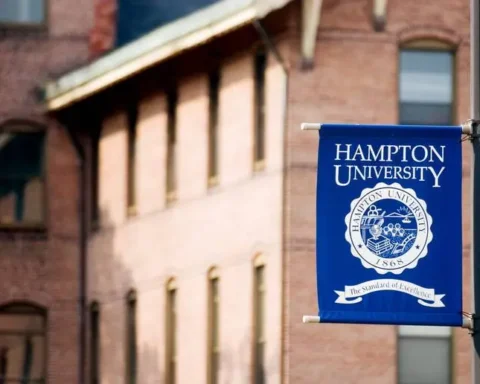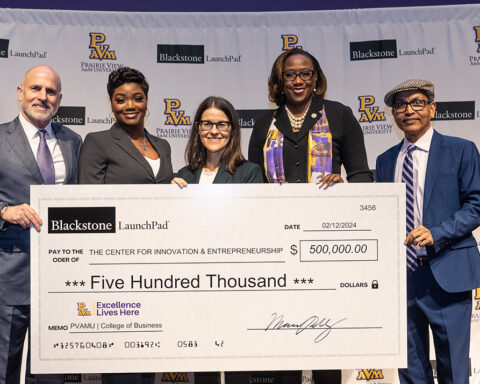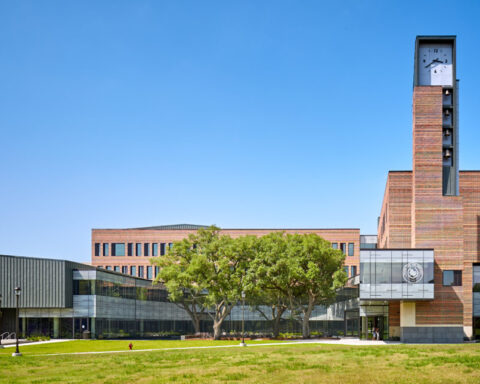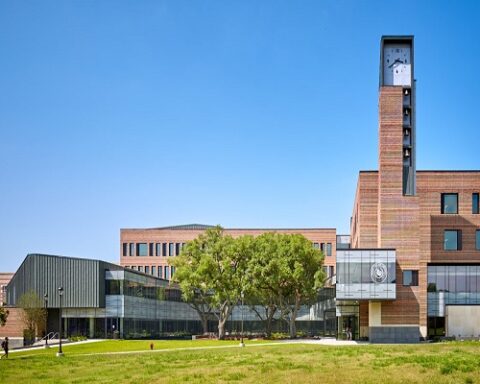By Ronald E. Goodwin, Ph.D,
Last year in this space, I sought to honor the sacrifices of Martin Luther King Jr. by focusing on some of the gains made by the black community since Lyndon B. Johnson signed the Civil Rights Act (1964) and the Voting Rights Act (1965). As part of the academic community, I celebrated the increases in high school and college graduation rates. Also, during the same period since the 1960s, the poverty rates decreased because of measurable gains in median household incomes.
Last year’s opinion piece was personal. In my mind’s eye, the Merciful Creator allowed me to sit with King and tell him what his sacrifices meant to the people he so dearly loved. I wanted him to know that his sacrifices were not in vain. Since his transition, children across this land learn of his story. They know about his faith in God and the human spirit. Because of this faith, these children have grown up in a society where “whites only” signs are now only seen in museums, not public spaces. Because of his faith, these children have access to the best institutions of higher learning this country has to offer.
But this year is different. Even though the Merciful Creator gave me another opportunity to visit with King, in my mind’s eye, I just don’t feel the same. I’m having a hard time holding my head up this time. Last year’s optimism centered on how far the black community has come. Maybe it was an illusion.
In my academic training, numbers are the bulwark of our research. I remember graduate advisors chastising me to correct interpretation comes from correct data. Last year’s data were accurate and verifiable. Perhaps more telling are the data indicating voting participation. Civic participation is the cornerstone of democracy. Sadly, the history of the black community is not one of civic participation but civic ostracism.
In 1857, Roger Taney, a Supreme Court Justice, publicly admitted that the Founding Fathers never intended for those brought in chains from Africa to enjoy the benefits of this country. That meant that a black man (Dred Scott) didn’t have the right to petition for anything, let alone his freedom. But, within a few years, overt slavery would end, blacks would become citizens, and black males had the legal right to vote.
But don’t think for a minute that the attitudes of those fighting to maintain people of color as worthless beasts of burden changed. While pundits continue debating whether Abraham Lincoln believed blacks should be considered socially equal in American society, there seem to be no questions as to the beliefs of Andrew Johnson, Lincoln’s White House successor. In his speech to Congress in 1867,[1] Johnson said
“Negro suffrage was established by an act of Congress, and the military officers were commanded to superintend the process of clothing the Negro race with the political privileges torn from white men.”
Ok, but I thought God created all men as equals? That is what Thomas Jefferson said and whose words became the bedrock of this Republic. Nonetheless, in the same speech, Johnson continued and said,
“But if anything can be proved by known facts, if all reasoning upon evidence is not abandoned, it must be acknowledged that in the progress of nations Negroes have shown less capacity for government than any other race of people. No independent government of any form has ever been successful in their hands. On the contrary, wherever they have been left to their own devices, they have shown a constant tendency to relapse into barbarism.”
Ok, I’m pretty upset now. This speech encapsulates the total ignorance of white supremacists. It disregards the ancient commercial centers found in Ghana and Songhay, the military dominance of the kingdom of Benin, or the well-known exploits of the Egyptians (yes, boys and girls, Egypt is located on the African continent). How could anyone, let alone the President of the US, declare that black people have never successfully governed themselves? So, I guess this follows the racist narrative that slavery saved black folks from themselves. After all, it was Massa that fed him, gave him the white man’s religion, and taught him to love his good white folks more than himself.
Ok, I digress.
We know the horrific legacy of Jim Crow. We know it all too well. We also thought those days were behind us. After all, the only racist artifacts left are in museums. Well, that’s what I thought last year.
But the data suggests blacks are voting like never before. In fact, in the 2012 presidential elections, the US Census data indicated that the black electorate outpaced their white counterparts. Analysts claim the Republic’s changing demographics led to a decline in the white share of the nation’s eligible voters, 83% in 1996 to a paltry 74% in 2012. In 2012, 66.2% of the black electorate voted, compared to 64.1% of non-Hispanic whites.[2]
Alas, this upward trend reversed itself in 2016, when 59.6% of the black electorate made it to the polls. Regardless, the message was clear. A new generation is here; A generation that refuses to be limited by race, gender, or orientation. But it also revealed something else: There are still those who, like President Andrew Johnson, believe that a government led by blacks cannot be successful.
So, even in a pandemic, US Census data indicated that the 2020 election had the largest increase in voting participation from one election to the next.[3] Even though black voter turnout (63%) was higher than in 2016, non-Hispanic white voters also went to the polls in 2020. Their participation in 2020 was 71% compared to 65% in 2016.
Perhaps the story is not about the numbers of folks participating in our democratic process, but maybe the numbers of people who felt the democratic process failed. In January 2021, this Republic watched in awe as supporters of former President Donald Trump attempted to thwart the peaceful transfer of political power. Some defenders of the Capital died while others will never be the same. Yes, there were some arrests, but others are defiant. They refuse to stand ideally by, they say, as the undeserving take their country from them.
So, as we prepare to honor the man whose sacrifices made my accomplishments possible, the right to vote is under attack. A CNN report indicates that since the 2020 election, there have been 360 bills introduced in 47 states that restrict the right to vote.[4] Of course, the objective of this Jim Crow-styled strategy is the maintenance of a powerbase whose demographic numbers are dwindling. Yes, indeed, some folks long for the “good ole days” of when the only sounds heard at night were the boll weevil in the cotton fields and the cries of mothers praying for their children taken from their arms on the auction block. Yet, it looks like the US Senate will not even consider a vote to protect the Voting Rights Act. I guess many folks are longing for the “good ole days.”
A year ago, I would not have believed this were possible. In my mind’s eye, I shared with Martin Luther King, Jr. the world he dreamed of had become a reality. A world where race mattered less than one’s contributions. I was proud to share those accomplishments with him. But today, I’m exasperated. Still, in my mind’s eye, I hear King say, “There are some dark days ahead.” And as I try not to let him see the tears forming in my eyes, he continued, “but, we as a people will get to the mountaintop.”
Sadly, our time was up. I thanked the Merciful Creator for giving me another opportunity to visit King. I came to this place to thank him for his life of sacrifices. In the end, he encouraged me. While today’s black community lives better than their fore-parents, I don’t think we’ve reached that elusive mountaintop. Even after eight years of the Obama presidency, which pundits initially hailed as the beginning of a post-racial American society, I’ve heard him referred to as that “nigger president.” But King’s words offer solace that a better world is coming. We just need to hang on.
Dr. King, we still love you, and your sacrifices will not be in vain.







